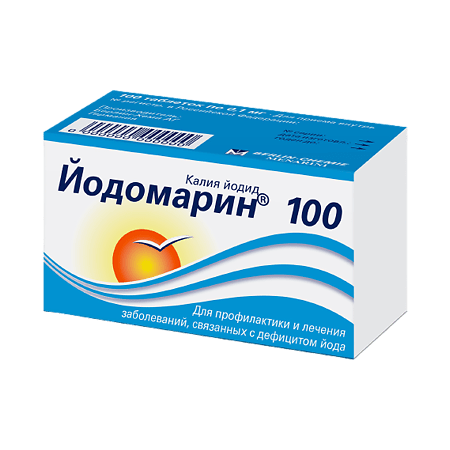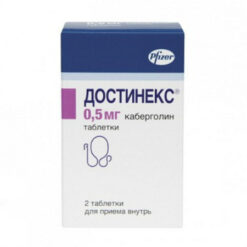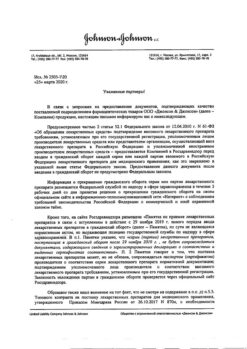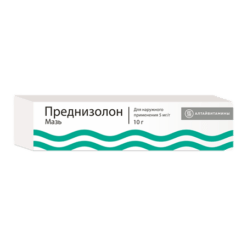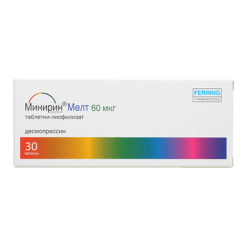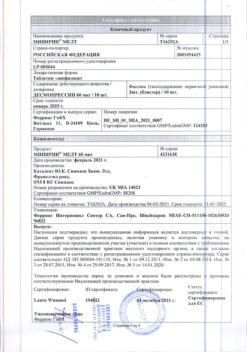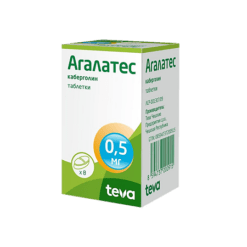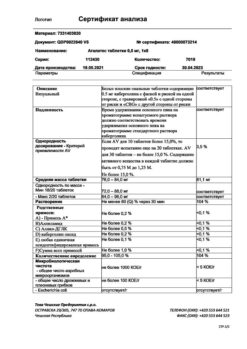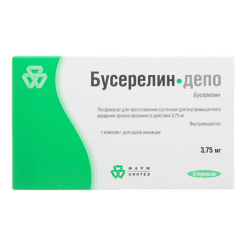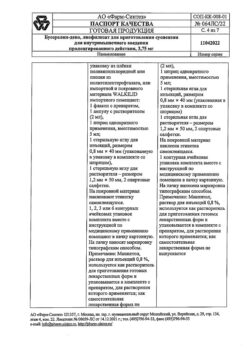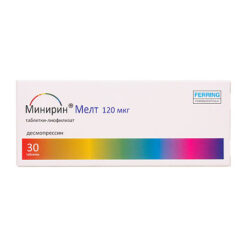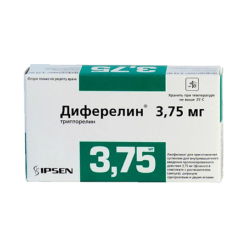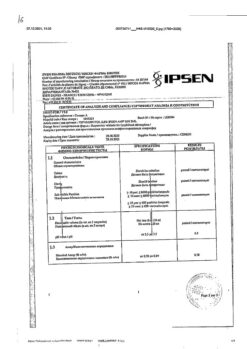No products in the cart.
Iodomarin 100, tablets 0.1 mg 100 pcs
€4.45 €3.96
Description
Pharmacotherapeutic group: Thyroxine synthesis regulator – iodine drug
ATC code: H0ZSA
Pharmacological properties
Pharmacodynamics
Iodine is a vital trace element that is an integral part of the thyroid hormones thyroxine and triiodothyronine. Thyroid hormones are involved in the development of all organs and systems, in the regulation of metabolic processes in the body: they are responsible for the exchange of proteins, fats, carbohydrates and energy in the body, regulate the activity of the brain, nervous and cardiovascular system, mammary glands, as well as the growth and development of children.
Iodine deficiency is especially dangerous for children, adolescents, pregnant and lactating women.
Pharmacokinetics
Iabsorption
When taken orally, potassium iodide is almost completely absorbed in the small intestine.
Distribution
The average volume of distribution for healthy individuals is approximately 23 liters (38% of body weight). Plasma concentrations of iodine are normal at 0.1 to 0.5 µg/dL. It accumulates in the thyroid gland, salivary glands, mammary glands, and gastric tissues. Concentrations in saliva, gastric juice and breast milk are about 30 times higher than in blood plasma.
Elimination
Excreted by the kidneys, the urinary concentration of iodine relative to creatinine (µg/g) is an indicator of its intake.
Indications
Indications
prevention of iodine deficiency diseases, incl. endemic goiter (especially in pregnant and lactating women);
prevention of goiter recurrence after its surgical removal or after completion of goiter treatment with thyroid hormone preparations;
treatment of diffuse euthyroid goiter in newborns, children, adolescents and young adult patients.
Pharmacological effect
Pharmacological effect
Pharmacotherapeutic group: thyroxine synthesis regulator – iodine preparation
ATX code: N0ZSA
Pharmacological properties
Pharmacodynamics
Iodine is a vital trace element that is a component of the thyroid hormones – thyroxine and triiodothyronine. Thyroid hormones are involved in the development of all organs and systems, in the regulation of metabolic processes in the body: they are responsible for the exchange of proteins, fats, carbohydrates and energy in the body, regulate the activity of the brain, the nervous and cardiovascular systems of the reproductive and mammary glands, as well as the growth and development of the child.
Iodine deficiency is especially dangerous for children, adolescents, pregnant and lactating women.
Pharmacokinetics
Suction
When taken orally, potassium iodide is almost completely absorbed in the small intestine.
Distribution
The average volume of distribution for healthy individuals is approximately 23 L (38% of body weight). The normal plasma iodine concentration ranges from 0.1 to 0.5 μg/dL. Accumulates in the thyroid gland, salivary glands, mammary glands and stomach tissues. The concentration in saliva, gastric juice and breast milk is approximately 30 times higher than in blood plasma.
Removal
Excreted by the kidneys, the concentration of iodine in urine relative to creatinine (mcg/g) is an indicator of its intake into the body.
Special instructions
Special instructions
It should be taken into account that during drug therapy in patients with renal failure, hyperkalemia may develop. Before starting therapy, it is necessary to exclude the presence of hyperthyroidism or nodular toxic goiter in the patient, as well as a history of these diseases. If there is a predisposition to autoimmune thyroid diseases, the formation of antibodies to thyroid peroxidase is possible. Saturation of the thyroid gland with iodine can prevent the accumulation of radioactive iodine used for therapeutic or diagnostic purposes. In this regard, it is not recommended to take the drug before carrying out activities using radioactive iodine.
Impact on the ability to drive vehicles and other mechanisms
The use of the drug Iodomarin® 100 does not affect the ability to drive vehicles and machines.
Active ingredient
Active ingredient
Potassium iodide
Composition
Composition
Composition per 1 tablet:
Active ingredient: potassium iodide – 0.131 mg (which corresponds to 0.1 mg of iodine);
Excipients: lactose monohydrate, magnesium hydroxycarbonate, gelatin, sodium carboxymethyl starch, colloidal silicon dioxide, magnesium stearate.
Pregnancy
Pregnancy
During pregnancy and breastfeeding, the need for iodine increases, so it is especially important to use the drug Yodomarin® 100 in sufficient doses to ensure adequate intake of iodine into the body. Potassium iodide passes through the placenta and into breast milk. If a nursing woman takes potassium iodide, additional administration of the drug to breastfed infants is not required.
The use of the drug during pregnancy and breastfeeding is possible only in recommended doses. When carrying out therapy, it is necessary to take into account the amount of iodine supplied with food.
Contraindications
Contraindications
hypersensitivity to potassium iodide and/or any excipient in the drug;
manifest hyperthyroidism;
subclinical hyperthyroidism – in doses exceeding 150 mcg of iodine per day;
solitary toxic adenomas of the thyroid gland and functional autonomy of the thyroid gland (focal and diffuse), nodular toxic goiter (with the exception of preoperative therapy for the purpose of blocking the thyroid gland);
lactose intolerance, lactase deficiency, glucose-galactose malabsorption syndrome;
Dühring’s herpetiform (senile) dermatitis.
The drug should not be used for hypothyroidism, except in cases where the development of the latter is caused by severe iodine deficiency. The use of the drug should be avoided during therapy with radioactive iodine, the presence or suspicion of thyroid cancer.
Side Effects
Side Effects
Rarely, allergic reactions may occur: skin rash, Quincke’s edema.
Interaction
Interaction
Iodine deficiency increases, and iodine excess decreases, the effectiveness of hyperthyroidism treatment with antithyroid drugs. Therefore, before or during treatment for hyperthyroidism, it is recommended to avoid any iodine intake if possible. On the other hand, antithyroid drugs inhibit the conversion of iodine into an organic compound in the thyroid gland and, thus, can cause the formation of goiter.
Substances that enter the thyroid gland through the same mechanism as iodides can compete with iodine and inhibit its uptake by the thyroid gland (for example, perchlorate, which also inhibits the recycling of iodides within the thyroid gland). Iodine absorption may also be reduced when using drugs that do not themselves enter the thyroid gland, for example, thiocyanate in concentrations exceeding 5 mg/dl.
Iodine uptake by the thyroid gland and its metabolism are stimulated by endogenous and exogenously administered thyroid-stimulating hormone (TSH).
Simultaneous treatment with high doses of iodine and lithium salts can contribute to the occurrence of goiter and hypothyroidism. High doses of potassium iodide in combination with potassium-sparing diuretics can lead to hyperkalemia.
Overdose
Overdose
Symptoms: brown staining of the mucous membranes, reflex vomiting (if there are starch-containing components in the food, the vomit becomes blue), abdominal pain and diarrhea (possibly the presence of blood in the stool). In severe cases, dehydration and shock may develop. In rare cases, esophageal stenosis has occurred. Cases of death were observed only after taking large amounts of iodine (30-250 ml of iodine tincture).
In rare cases, long-term overdose of potassium iodide can lead to the development of so-called “iodism”, i.e. iodine intoxication: metallic taste in the mouth, swelling and irritation of the mucous membranes (runny nose, conjunctivitis, gastroenteritis, bronchitis). Potassium iodide can activate latent inflammatory processes such as tuberculosis. Possible development of edema, erythema, acne-like and bullous rash, hemorrhage, fever and irritability.
Treatment for acute intoxication: gastric lavage with a solution of starch, protein or 5% sodium thiosulfate solution until all traces of iodine are removed. Symptomatic treatment of water-electrolyte imbalances, anti-shock therapy.
Treatment for chronic intoxication: withdrawal of potassium iodide.
Treatment of iodine-induced hypothyroidism: withdrawal of potassium iodide, normalization of metabolism with the help of thyroid hormones.
Treatment of iodine-induced thyrotoxicosis: for mild forms of treatment, no treatment is required; in severe forms, thyreostatic therapy is required (the effect of which is always delayed). In severe cases (thyrotoxic crisis), intensive therapy, plasmapheresis or thyroidectomy are necessary.
In the case of hyperthyroidism, we cannot talk about an overdose as such, since hyperthyroidism can be caused by an amount of iodine that is normal in other countries.
Storage conditions
Storage conditions
At a temperature not exceeding 25 °C.
Keep out of the reach of children!
Shelf life
Shelf life
3 years. Do not use after expiration date.
Organization receiving complaints from consumers:
LLC “Berlin-Chemie/A. Menarini”, Russia
123112, Moscow, Presnenskaya embankment, building 10, Business Center “Tower on the Embankment”, Block B, tel. (495) 785-01-00, fax (495) 785-01-01.
Manufacturer
Manufacturer
Berlin-Chemie AG, Germany
Additional information
| Shelf life | 3 years. Do not use after the expiration date. Organization accepting claims from consumers: LLC Berlin-Chemistry/A. Menarini, Russia 123112, Moscow, 10, Prosnenskaya naberezhnaya, Business Center "Bashnya na naberezhnoy", Block B, Tel (495) 785-01-00, fax (495) 785-01-01. |
|---|---|
| Conditions of storage | At a temperature not exceeding 25 ° C. Keep out of reach of children! |
| Manufacturer | Berlin-Chemie AG, Germany |
| Medication form | pills |
| Brand | Berlin-Chemie AG |
Related products
Buy Iodomarin 100, tablets 0.1 mg 100 pcs with delivery to USA, UK, Europe and over 120 other countries.

